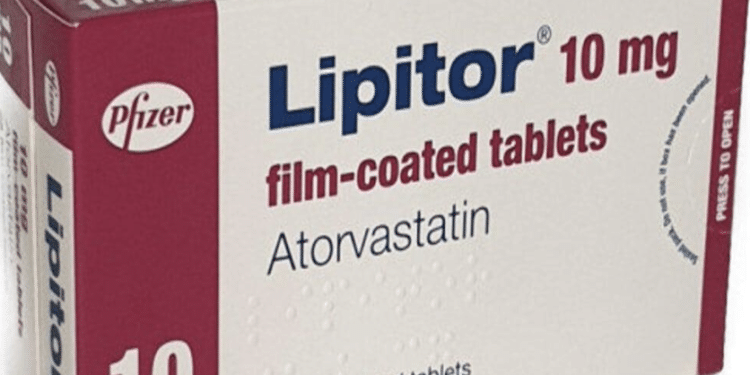Could Beta Blockers and Stains be a Contributor?
By Staff Writer Lisel B
Reversible Aphasia, a potentially temporary impairment in language comprehension or expression, is often associated with neurological events such as transient ischemic attacks (TIAs), migraines, or seizures. However, emerging anecdotal reports and scattered case studies have raised questions about whether certain medications—particularly those used to manage blood pressure and cholesterol—might also play a role in triggering or exacerbating these episodes. While the evidence remains inconclusive, the hypothesis warrants closer scrutiny, especially given the widespread use of these drugs among aging populations.
Blood pressure medications, particularly those in the antihypertensive class such as beta-blockers, ACE inhibitors, and calcium channel blockers, are known to influence cerebral blood flow. In some individuals, especially those with preexisting cerebrovascular vulnerabilities, a sudden drop in blood pressure can reduce perfusion to language centers in the brain. This hypoperfusion, though often transient, could theoretically manifest as reversible aphasia, particularly if the left hemisphere’s perisylvian region is affected.
Similarly, cholesterol-lowering medications—most notably statins—have been linked in rare cases to cognitive side effects, including memory lapses and confusion. The FDA has acknowledged these effects as “non-serious and reversible,” yet the mechanisms remain poorly understood. Given that cholesterol is a critical component of neuronal membranes and synaptic function, it is plausible that aggressive lipid-lowering could, in susceptible individuals, interfere with neural communication in language-related areas.
The brain houses approximately 25% of the body’s cholesterol, underscoring its importance in maintaining cognitive integrity. While statins are generally safe and effective, their impact on brain function may not be uniform across all users. Some patients report experiencing “brain fog” or difficulty finding words—symptoms that, while not clinically classified as aphasia, may share overlapping neurobiological substrates.
It’s also worth noting that the pharmacodynamics of these medications can vary significantly depending on dosage, patient age, comorbidities, and concurrent drug use. For instance, polypharmacy in elderly patients can amplify side effects or create unpredictable interactions. A patient taking both antihypertensives and statins may be at greater risk of experiencing transient neurological symptoms, especially if hydration, nutrition, or sleep are compromised.

Moreover, the nocebo effect—where patients experience side effects due to expectation rather than pharmacological action—complicates the picture. In clinical trials, some individuals report cognitive symptoms even when taking placebos. This psychological overlay makes it difficult to disentangle genuine drug-induced aphasia from stress-related or psychosomatic phenomena.
Nonetheless, the possibility of a pharmacological trigger for reversible aphasia should not be dismissed outright. Case reports have documented instances where discontinuation or adjustment of medication led to resolution of language deficits. While these are anecdotal and lack the rigor of randomized controlled trials, they offer valuable clues that merit further investigation.
One challenge in establishing causality is the episodic nature of reversible aphasia. By the time a patient seeks medical attention, the symptoms may have resolved, leaving little objective evidence. Neuroimaging during an episode could help identify transient changes in perfusion or neural activity, but such opportunities are rare and logistically difficult.
Another complicating factor is the overlap between reversible aphasia and other transient neurological syndromes. For example, transient global amnesia, complex migraines, and focal seizures can all mimic aphasia. Without thorough differential diagnosis, attributing symptoms to medication becomes speculative at best.

Still, the stakes are high. If even a small subset of patients is vulnerable to language disruption from commonly prescribed medications, clinicians need to be aware. This is particularly true for individuals whose professions or daily functioning depend heavily on verbal communication.
From a public health perspective, the issue also intersects with informed consent. Patients deserve to know not only the cardiovascular benefits of their medications but also the full spectrum of potential side effects, however rare. Transparent communication fosters trust and allows for shared decision-making.
Pharmaceutical companies and regulatory bodies could play a more proactive role by funding studies that explore cognitive and linguistic side effects in greater depth. Post-marketing surveillance systems should be attuned to subtle neurological complaints, not just overt adverse events.
In the meantime, clinicians might consider periodic cognitive screening for patients on long-term antihypertensive or statin therapy, especially if they report subjective changes in language or memory. Adjusting dosage, switching medications, or implementing lifestyle interventions could mitigate risks without compromising cardiovascular protection.
Ultimately, the connection between reversible aphasia and blood pressure or cholesterol medications remains a hypothesis—intriguing, plausible, but not yet proven. It sits at the intersection of neurology, pharmacology, and patient experience, demanding a multidisciplinary approach to unravel.
Until more definitive data emerge, the best course may be vigilance: listening carefully to patients, documenting patterns, and remaining open to the idea that even life-saving medications can have unexpected effects on the mind’s most delicate faculties










